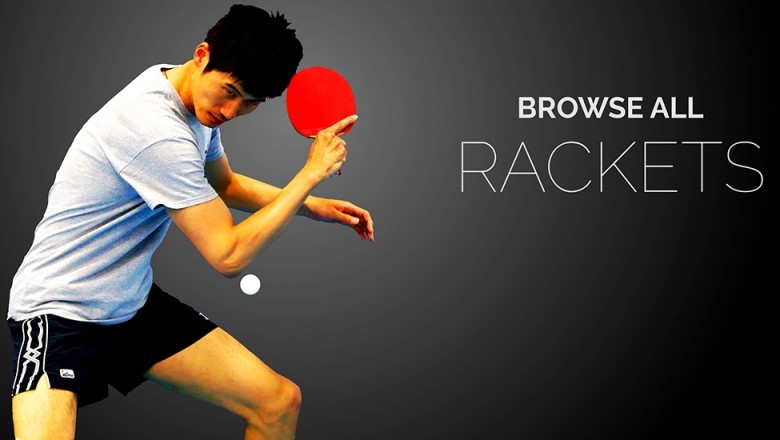views

In every corner of the world, you'll find homes and recreation centers with ping pong tables. They're an excellent recreational opportunity for anyone who wants to play. But some of us will enjoy it enough to want to play more seriously. It's when buying a table tennis racket becomes more of interest. Many mid-priced rackets are excellent for beginners, so you don't need to spend a fortune. The game relies on many sophisticated playing techniques (think putting a spin on the ball), so having a better racket in your hand means a lot. Once you have your racket, it's time to learn a lot more about the game.
Scoring is one of the first areas to make sure you know. Today's regulation scoring methods are different from years ago, and many casual players don't know about it. Table tennis games are now played to 11 points instead of 21. The serves rotate between players, and two serves each time. Once you have adequate scoring information under your belt, you're ready to find new opponents and play more games. If there is a table tennis center in your community, you might want to take a tour and consider joining. Having more serious players around encourages you to practice and improve.
As brought up earlier, buying a racket was likely your first move toward playing table tennis more seriously. It is the most crucial piece of equipment in nearly everyone's opinion. You probably were both smiling and surprised when you tried a game with your new paddle. It's a far cry from one that was shared by anyone playing on the table you're using. Hopefully, you bought yours at a specialty retailer or after talking to other players first. The racket grip has a lot to do with your development as a more proficient player, and you want to select based on knowledge. Getting it right will mean a lot to you.
The initial impulse is to play many games because it's fun and helps you improve your skills. While there is no doubt about the value of practice, it is not the only way to improve. Skill-building training drills are part of improvement as well, and coaches highly recommend them. Isolating a skill like your stance can mean a lot. Learning to stand low and wide comfortably takes some practice, and when you can, you'll play much better. If you decide to sign up for coaching, expect to be working on skills like it in addition to your practice games. Everyone's enjoyment of a sport improves when they play well.












